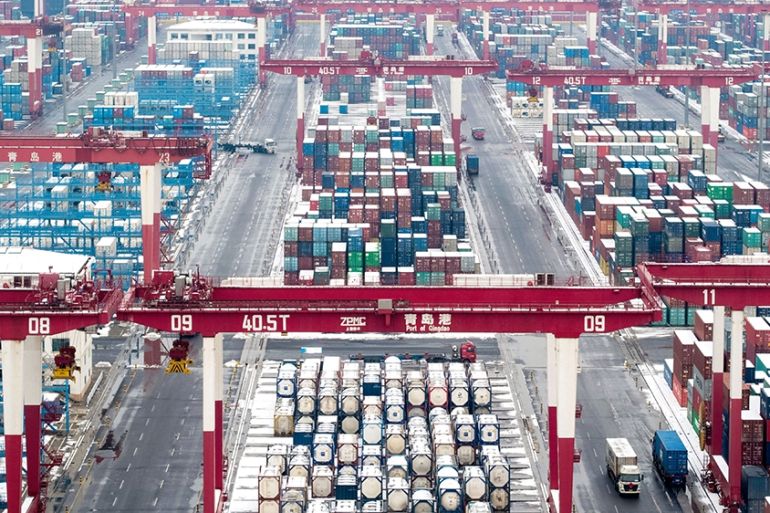Slower growth, rising risks are weakening the global economy
World Bank says softer business confidence and trade is challenging the global economy in both the near and long-term.

The global economy has weakened since January of this year and is not growing as fast.
The World Bank released its bi-annual Global Economic Prospects Report and expects global growth to be a weaker-than-expected 2.6 percent in 2019 before inching up to 2.7 percent in 2020.
Keep reading
list of 4 itemsWhy are nations racing to buy weapons?
Parallel economy: How Russia is defying the West’s boycott
US House approves aid package worth billions for Ukraine, Israel
The bank said a decline in business confidence, less investment in emerging and developing markets and slowing growth around the world led it to lower its forecast for 2019.
This is the lowest World Bank forecast for the global economy since 2016.
Rising trade barriers, a buildup of government debt and what the World Bank said are “deepening slowdowns” in major economies are all contributing to slower global economic growth, noted David Malpass, the World Bank’s new president. These factors are “worrisome”, he said, because “ongoing investment is needed for continued growth”.
“Because of slowing global growth, elevated policy uncertainty and limited fiscal space, investment growth in developing economies is expected to stay weak and below historical averages,” Malpass said.
On January 8 the World Bank projected global growth to “soften”, and at that time, it revised its global forecast down from 3 percent to 2.9 percent for 2019. But as US President Donald Trump has ramped up his rhetoric around global trade, positive sentiment on the global economy has taken a hit.
Policy action now warranted
“The global economy is approaching a crossroads,” Ayhan Kose, the World Bank’s director of Development Economic Prospects, told reporters. “Global growth is slowing and risks are rising.”
Kose said the slowdown that began in early 2018 has continued. “We warned of darkening skies,” he said, referring to the bank’s January forecast. “Now it is data.”
In a signal to policymakers around the world, Kose now believes action by them is warranted to help stabilise the global economy.
“Policymakers need to act with a sense of urgency to reduce uncertainty and take steps to improve confidence,” he said. “This will promote growth and stability.”
Details in the data
The global economy is facing headwinds. Manufacturing, construction and services data across multiple economies all came in weaker for the month of April. Activity also slowed considerably over the past several months, and this slowdown has not been limited to the United States alone.
The economies of Malaysia, Taiwan, South Korea and Japan all experienced slower manufacturing activity in April. Europe, including manufacturing powerhouse Germany – a major trading partner of the US – also saw declines.
Factory orders, which are a key growth indicator, are likely to deteriorate even more in the coming months as higher trade tariffs impact commerce. Last week, Trump announced new tariffs on Mexico, which could have a direct hit on US consumer spending.
Speaking in Chicago on Tuesday, US Federal Reserve chairman Jerome Powell suggested the central bank would act on its current policy stance if it had to. Powell stated the Fed was “closely monitoring” the impact of trade developments and would “act as appropriate”.
“We do not know how or when these issues will be resolved,” Powell said referring to the recent flare-up in global trade. “We are closely monitoring the implications of these developments for the US economic outlook.”